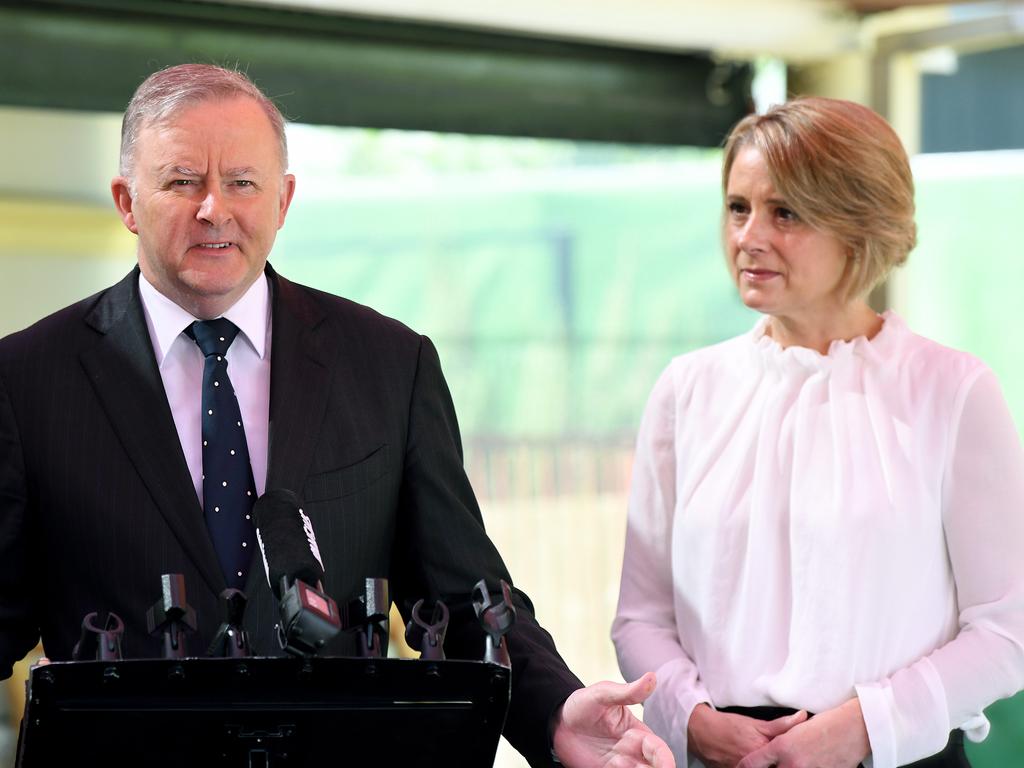
The brilliant Johannes Leak captured the reprehensibility of Labor’s decision to trash its diversity targets last week. Keneally may gab about diversity but she’s not willing to stand aside so a local Vietnamese-Australian lawyer who lives and works in Fowler may get preselected for the safe NSW federal seat.

There is nothing new about naked ambition and hypocrisy. But the next time Keneally or any other Labor politician talks earnestly about the importance of diversity in the Labor Party, ask her to pull the other one.
There is a darker side when political parties and other organisations tie themselves up in knots with diversity talk and targets. For starters, how small should we make the slices when carving up society for the purposes of handing out identity group benefits? Gender targets cover two halves of the population. Sexuality, skin colour and disability slice and dice us up a little more. But what about religion? Or family income?
Last week in Britain, accounting and consulting firm KPMG announced class targets. The firm aims to employ 29 per cent of its partners and directors from the working class by 2030. Why 29 per cent? Maybe it was plucked out of the air as part of KPMG’s resolve to make amends for a recent brouhaha where former chairman Bill Michael told a meeting attended by about a third of the firm’s 1500 staff that unconscious bias was “complete and utter crap” and told staff to stop “playing the victim card”.
The 52-year-old Australian apologised when some people took offence. Alas, in these puritanical times an apology doesn’t cut it. Michael was forced out, saying his position had become untenable. That’s a shame. Disciples of woke ideology might benefit from hearing from straight-talkers who are willing to challenge ideas that may prove really bad for us. They could also learn about the virtue of redemption.

With Michael out, and two women taking up senior roles to fix the confected mess, KPMG has settled on a working-class target. Working class is defined as those people who, at 14, had parents with jobs that were “routine and manual” such as plumbers, electricians, butchers and van drivers. If your parents had become stinking rich from a successful plumbing business by the time you’re 16, you’re still a victim for KPMG purposes.
This policy is condescending and dangerously messy. It’s not hard to predict a direct relationship between the size of the benefits that accrue from targets such as this and the resentments that this process will stoke. As soon as you attach benefits to membership of more than one group, you need a hierarchy of groups and the means to settle disputes about that hierarchy. In a job contest between a middle-class girl and an equally qualified working-class boy, who wins? What if one has an ethnic background and the other has a physical disability?
Once we started down the road of identity politics, it became inevitable that groups of people would subdivide into smaller and smaller groups to lay claim to categories of victimhood that derive the greatest benefits. It’s easy to predict that well-to-do boys and girls will start talking in broad accents to secure top billing in some corporatised hierarchy of victims.
KPMG has provided clear incentives for job applicants to ham up working-class credentials. It’s already happening, of course. As James Kirkup wrote in The Times last week, “At my (posh) university, I met countless students who had grown up with wealth but passionately downplayed it. Most of the Old Etonians had awful Mockney accents and said they went to school ‘near Slough’.”

Targets are a ham-fisted way to hand out benefits to so-called victims. The bigger the rewards, the bigger the incentive for people to push a target barrow that works best for them. Those women who are most in favour of gender targets on boards are also the biggest beneficiaries of board seats that bring fat salaries. And women in this clique fill numerous board seats across corporate Australia. Their push for quotas is not so much about equality. It’s a different form of inequality that favours them this time around.
Promotion practices in Australia’s mining industry are, according to analysis by accounting firm BDO, so skewed along gender lines that women are appointed to managerial roles nearly a decade earlier than men.
Californian law mandates that public company boards diversify along racial, ethnic, sexual and gender identity lines, with at least one member from an under-represented community by the end of this year and at least two or three by the end of next year. The law defines the under-represented as anyone who self-identifies as black, African-American, Hispanic, Latino, Asian, Pacific Islander, Native American, Native Hawaiian or Alaska Native, or who self-identifies as gay, lesbian, bisexual or transgender.
This is in addition to the 2018 Californian law that requires at least two women on a company board of five directors, or at least three women on a board of six by the end of this year.
Similar laws exist in some European countries. It’s too bad for shareholders, the owners, who may want to invest in a company where the only filter on advancement is merit, so that the very best people are running the joint.
Once you bake identity politics into society with benefits, it will be very hard to undo. Vested interests will fight tooth and nail to hold on to their special benefits. That can only guarantee an acrimonious clash of targets among those claiming to be the biggest victims in order to claim the biggest benefits.
Companies, like political parties, make a terrible mistake when they insist on playing social engineer. They would be better off focusing on what we have in common to unite us, rather than on the differences that divide us.








It’s not hard to imagine a tacky TV show called Clash of the Targets. The pilot episode might feature US-born Kristina Keneally fighting to secure a safe Labor seat to stay in parliament. She’s up against a Vietnamese-Australian community worker, Tu Le, who ticks a few of the party’s diversity targets: young, female, Asian. Pulling out the big guns, Keneally says she’s a boat person too; after all, she lives on Scotland Island, a salubrious suburb on Sydney’s northern beaches accessible only by boat.